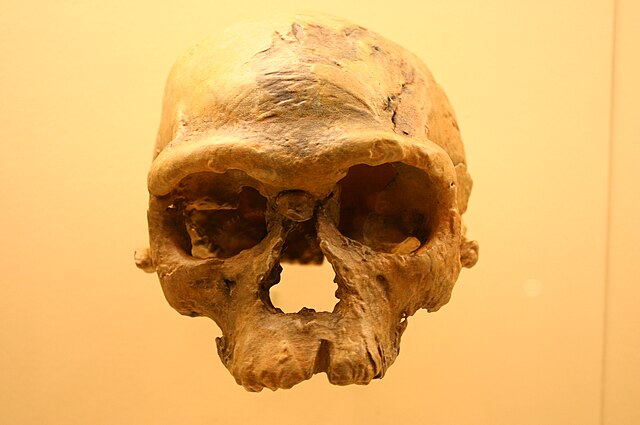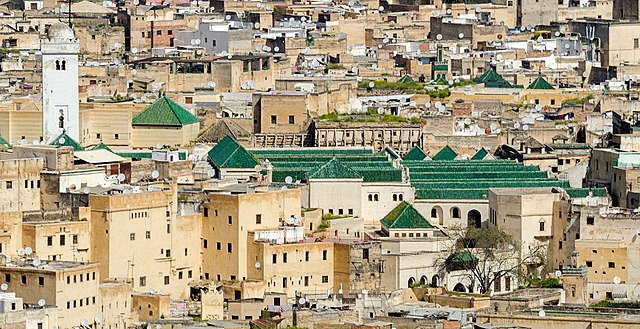Jebel Irhoud or Adrar n Ighoud, is an archaeological site located just north of the locality known as Tlet Ighoud, approximately 50 km (30 mi) south-east of the city of Safi in Morocco. It is noted for the hominin fossils that have been found there since the discovery of the site in 1960. Originally thought to be Neanderthals, the specimens have since been assigned to Homo sapiens and, as reported in 2017, have been dated to roughly 300,000 years ago.
Jebel Irhoud-1, dated 286±32 kya, Smithsonian Natural History Museum
Jean-Jacques Hublin at Jebel Irhoud (Morocco), pointing to the crushed human skull (Irhoud 10), whose orbits are visible just beyond his finger tip
A composite reconstruction of the earliest-known Homo sapiens fossils from Jebel Irhoud, based on micro-computed tomographic scans of multiple original fossils
Morocco, officially the Kingdom of Morocco, is a country in the Maghreb region of North Africa. It overlooks the Mediterranean Sea to the north and the Atlantic Ocean to the west, and has land borders with Algeria to the east, and the disputed territory of Western Sahara to the south. Morocco also claims the Spanish exclaves of Ceuta, Melilla and Peñón de Vélez de la Gomera, and several small Spanish-controlled islands off its coast. It has a population of roughly 37 million, the official and predominant religion is Islam, and the official languages are Arabic and Berber; French and the Moroccan dialect of Arabic are also widely spoken. Moroccan identity and culture is a mix of Arab, Berber, African and European cultures. Its capital is Rabat, while its largest city is Casablanca.
Ptolemy of Mauretania was the last to rule the Kingdom of Mauretania prior to Roman conquest.
Roman ruins of Volubilis.
Idrisid coin in Fes, 840
al-Qarawiyyin, founded in Fes in the 9th century, was a major spiritual, literary, and intellectual centre.







